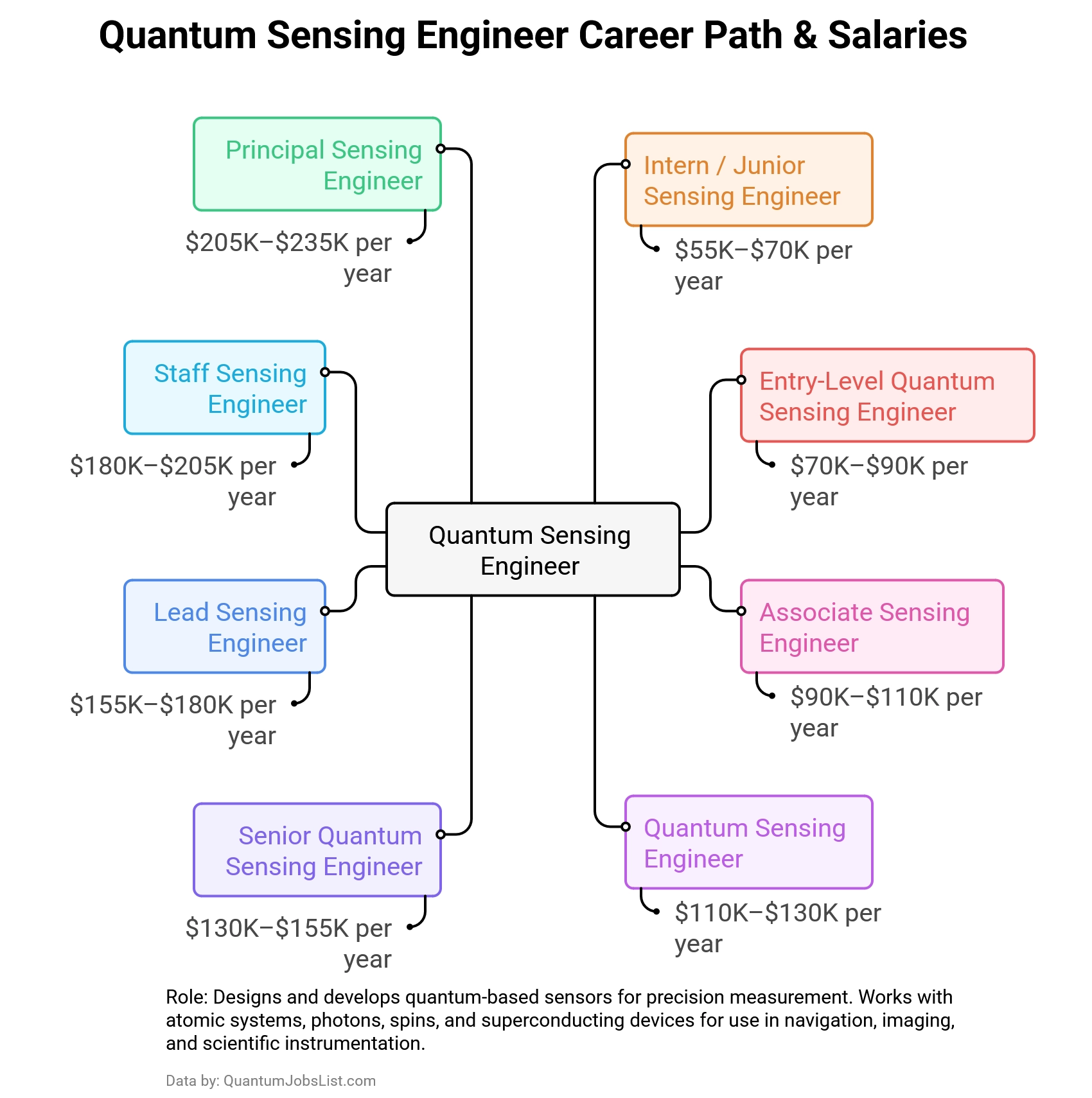They create devices using atomic interferometry, nitrogen-vacuum cells, and superconducting circuits. These devices precisely measure the gravitational field, detect rotation & magnetic fields. They apply these technologies in navigation, medical imaging, and scientific research.
In 2025, Quantum Sensing Engineers will earn between $80,000 and $158,000 globally, depending on their specialization and location. In comparison to the classical instruments, the new sensors are much more sensitive and precise, and they sensors are made using Quantum Physics principles.
As of now, in the world, the quantum sensing technology is in the phase of moving from the research labs to the world of commercialization, and there are about 2200 - 2800 quantum sensing stock engineers.

What is the average base salary?
Min. Qualifications
What You Need to Know
What applications do Quantum Sensing Engineers work on?
They develop quantum magnetometers for brain imaging, and atomic clocks for GPS alternatives. They also build gravimeters for mineral exploration, and quantum gyroscopes for autonomous vehicle navigation systems.
What is the average salary for a Quantum Sensing Engineer?
Quantum Sensing Engineers earn $80,000-$158,000 globally. American positions average $125,000 a year. European roles around €107,000, while remote positions at $119,000 annually.
What qualifications are needed to become a Quantum Sensing Engineer?
A master's degree in Physics, Electrical Engineering, or a related field is required. Experience in atomic sensors, magnetometers, gravimeters, and knowledge of quantum mechanics and signal processing are also valuable.
What does a Quantum Sensing Engineer do?
A Quantum Sensing Engineer develops quantum sensors for precision measurements in navigation, medical imaging and research using atomic interferometry & quantum phenomena to achieve unprecedented accuracy.
More Quantum Job Salaries
Cryogenic Engineer (Quantum Systems)
Builds ultra-low temperature systems for quantum hardware, earning $90,000-$185,000+.

Quantum Control Engineer
Designs and tunes quantum hardware control systems, earning $95,000-$190,000+.

Quantum DevOps Engineer
Manages quantum infrastructure and pipelines, earning $90,000-$180,000+.

Quantum Solutions Architect
Designs enterprise-ready quantum systems, earning $100,000-$210,000+.

Quantum Product Manager
Leads quantum product vision and delivery, earning $100,000-$220,000+.

Quantum Technical Writer
Creates documentation, and technical content for quantum computing products and research.


.svg)
.svg)

